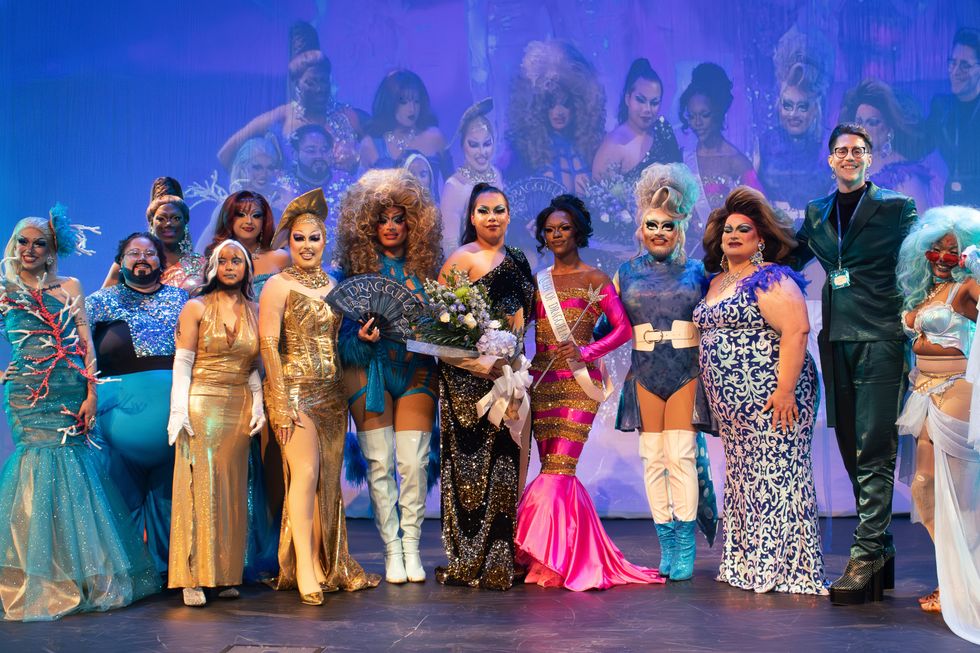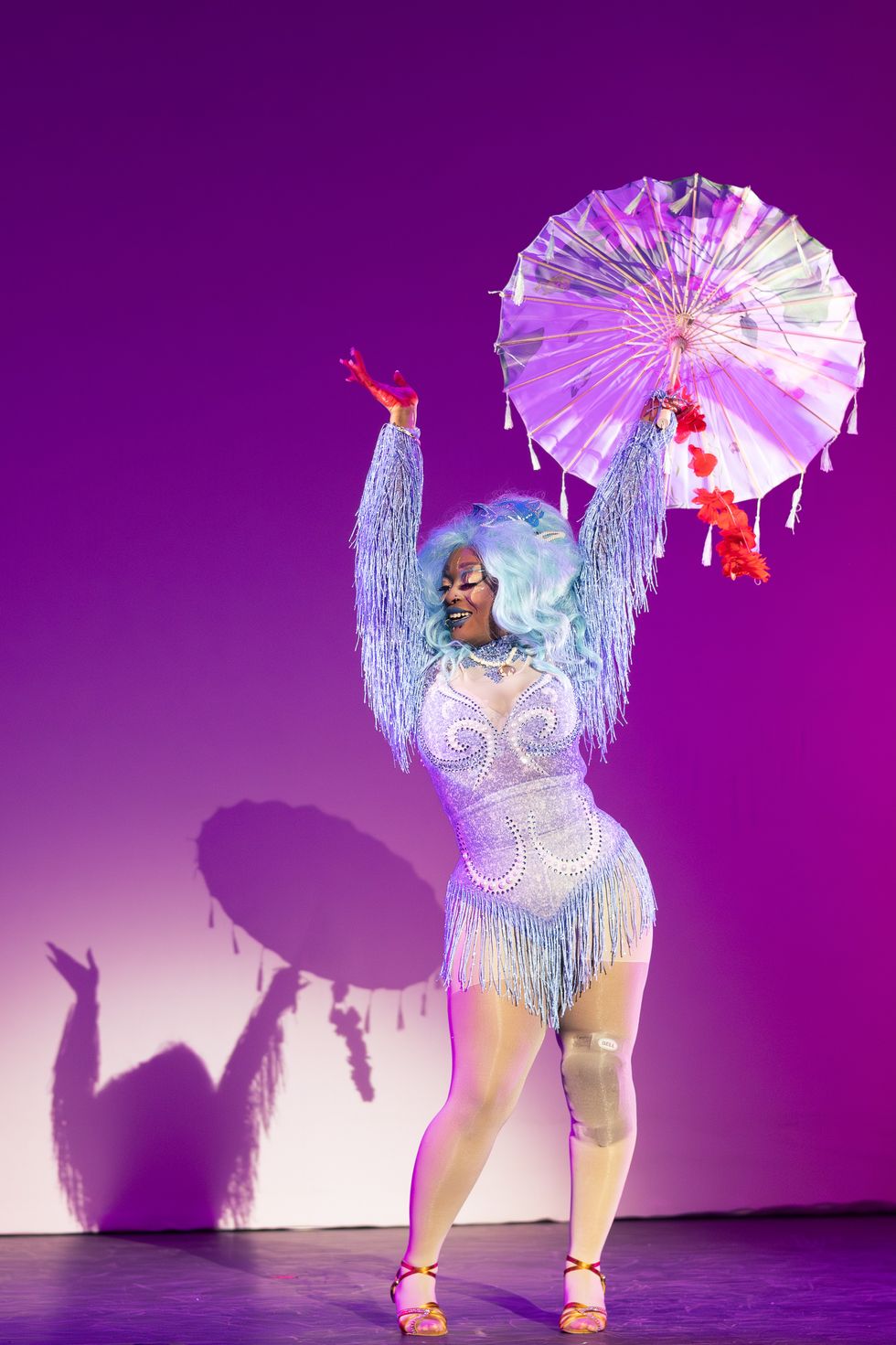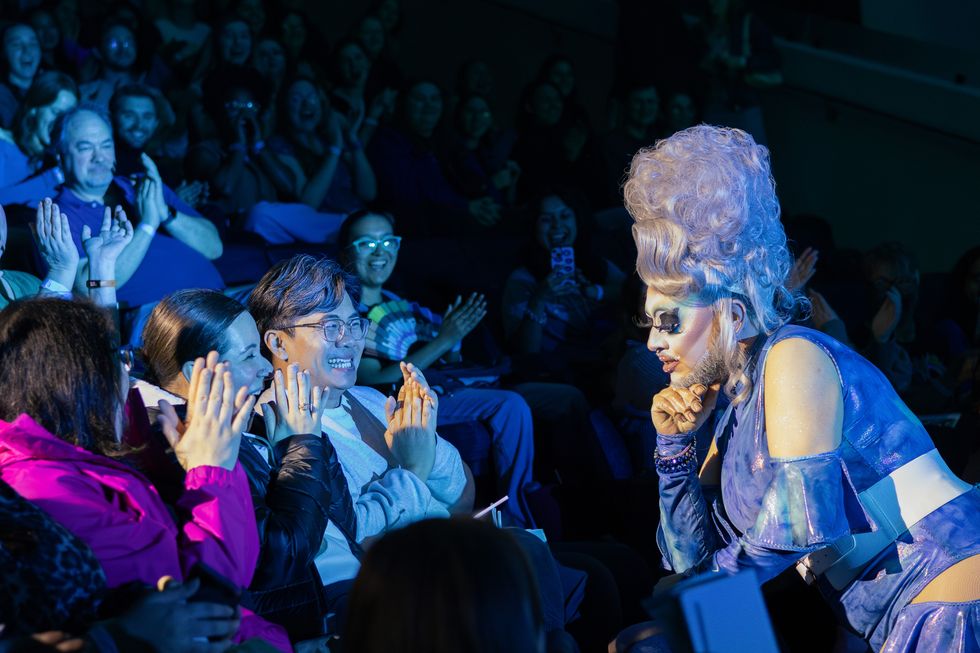[This week GOOD Sports will be commemorating the 45th anniversary of Title IX.]
On June 23, 1972, the United States Department of Justice passed a federal law called Title IX, prohibiting “the discrimination on the basis of sex in any federally funded education program or activity.” This ruling, which arrived at the peak of the women’s movement, wasn’t just a gamechanger for girls who loved sports. The law cultivated a culture that encouraged female athleticism and enhanced the future of an entire generation.
The Justice Department’s 2009 memo celebrating the 40th anniversary of Title IX points out, “Women now have higher graduation rates and lower high school dropout rates, take more Advanced Placement exams, and earn more advanced degrees than their male counterparts. They also tend to score higher in reading assessment tests than male students.”
[quote position="left" is_quote="true"]If the trend continues, by 2020 more than 25 percent of schools will not offer athletics.[/quote]
It’s true we have come far in the fight for equal opportunities in the classroom and on the playing field, but as any female athlete can tell you, the battle is far from over.
“This kind of dates me. I was pre-Title IX,” says Judy Sweet, the first woman to ever be president of the National Collegiate Athletic Association. As an undergraduate at the University of Wisconsin in the late 1960s, she explains, there were no women’s sports programs for her to officially participate in.
Despite missing out on athletic pursuits in college, Sweet is passionate about the subject, becaming the athletic director at the University of California, San Diego, where there was one of the few combined men’s and women’s athletic programs in the country.
The first thing she noticed was the stark difference in how men’s and women’s teams were financially supported,and the opportunities that were available to the men and the women. “That’s where I, fortunately, was able to start making changes,” she says.
While Sweet herself is proof of the strides we’ve made, she is well-aware of the fight that still remains, especially in light of the appointment of Betsy DeVos, President Trump’s new education secretary.
As noted in her congressional hearing, DeVos has no plans to uphold 2011 Title IX guidance on sexual assault in schools.
When asked for her views on sexual assault and Title IX by Sen. Robert P. Casey Jr., D-Pa.,during her senate confirmation hearing in January, DeVos deflected her answer to say she will deal with the issue as it comes.
Casey: “I ask you, would you uphold that 2011 Title IX guidance as it relates to sexual assault on campus?”
DeVos: “Senator, I know that there’s a lot of conflicting ideas and opinions around that guidance, and if confirmed, I would look forward to working with you and your colleagues and understand the range of opinions and understand the issues from the higher ed institutions that are charged with resolving these and addressing them. And I would look forward to working together to find some resolutions.”
Casey: “I agree with the guidance. So I’m just asking for a yes or no. I guess you’re not going to give me a yes or no answer on committing to upholding that guidance.”
DeVos: “It would be premature for me to do that today.”
Sweet is aware of this issue. “There are still significant gaps in participation opportunities, funding, support, recruiting budgets, there’s really no area where in the aggregate there is equality,” she says, “and this is 45 years after the passage of Title IX.”
Most of the credit in Title IX’s first passage and subsequent support over the years goes to “soccer moms and dads” who really helped shape it from the get-go, Sweet says. In addition to the fervent support of parents for their young daughters on the soccer pitch, there is one group who has stood tall and proud for female athletes and the protection of Title IX: the Women’s Sports Foundation.
“We had a great meeting this morning from Senator Gillibrand's office to really share the importance of IX and the strides that we’ve made so far, and where we still have progress to be made,” Sarah Axelson, Senior Manager, Advocacy & programs for the foundation tells GOOD during a brief phone call as she pounded the pavement in Washington, D.C.
The work of the foundation cannot be underestimated, though it often flies under the radar.
Since the foundation’s beginnings in 1974 by tennis legend, Billie Jean King, it has advocated for women’s sports programs and equal rights at every level, including founding National Girls & Women in Sports Day, a day celebrated each February to mark the incredible achievements of female athleticism and to “advance the lives of women and girls through sports.”
One of the ways the foundation takes on such a task is by discovering, assessing, and disseminating research with profound effects.
“If the trend continues, by 2020 more than 25 percent of schools will not offer athletics. And that’s a scary stat because we know the health education and leadership benefits that all student athletes gain from their participation in sports,” Axelson says of one such research project by the foundation.
And it’s not just a woman’s right to kick a ball on the same field as a man that people like Sweet, the Justice Department, and Axelson are worried about. It’s the very real-world and tangible things that both men and women gain from athletic pursuits.
[quote position="right" is_quote="true"]There’s been a lot hypothesized about what might happen, but our hope is that things remain strong.[/quote]
“We recognize that sports turn girls into leaders. If you look at some of the stats of female leadership and CEOs, about 90 percent of them have played sports and attribute their sport background to some of their leadership skills,” Axelson says. While the justice department adds, “Because education is linked to other benefits, such as participation in the labor force, increased earnings, better health and increased access to healthcare, the benefits of Title IX extend far beyond those experienced in school.”
The biggest area of need, Axelson explains, is for young women of color across the country who are “really doubly hit by race and gender.”
As the National Women’s Law Center examines in its “Finishing Last: Girls of Color and School Sports Opportunities” report, schools with predominantly minority students already suffer from a lack of funding for both academics and extracurricular activities, adding, “When it comes to girls of color and chances to play school sports, the reality is bleak: they receive far fewer opportunities—defined as spots on teams—than white girls, white boys, and boys of color.”
The report goes on to note, nationwide, 40 percent of heavily minority schools (defined as having a 90 percent minority student body), have large “female opportunity gaps,” compared to only 16 percent of heavily white schools. For every 100 students in a heavily minority high school there are just 25 spots on sports teams. “By contrast, at the typical heavily white high school, for every 100 students there are 58 spots.” Thus, these young women are being denied the same rights and privileges to grow athletically, academically, and socially as both their white and male counterparts--encouraging a systemic and cyclical race issue in America.
So what can stop this? Simply put, you (and perhaps a new cohort of soccer parents).
“There’s been a lot hypothesized about what might happen, but our hope is that things remain strong,” Axelson replies when asked about her feelings on the new administration. But don’t think they’ll go down without a fight. As she adds, “We’re geared up and we are in sync with many who are ready and willing to advocate for women and girls, especially with opportunities in sport.”















 Let us all bow before Gary, the Internet's most adventurous feline. Photo credit: James Eastham
Let us all bow before Gary, the Internet's most adventurous feline. Photo credit: James Eastham Gary the Cat enjoys some paddling. Photo credit: James Eastham
Gary the Cat enjoys some paddling. Photo credit: James Eastham James and Gary chat with Ryan Reed and Tony Photo credit: Ryan Reed
James and Gary chat with Ryan Reed and Tony Photo credit: Ryan Reed


 Rock deterioration has damaged some of the inscriptions, but they remain visible. Renan Rodrigues Chandu and Pedro Arcanjo José Feitosa, and the Casa Grande boys
Rock deterioration has damaged some of the inscriptions, but they remain visible. Renan Rodrigues Chandu and Pedro Arcanjo José Feitosa, and the Casa Grande boys The Serrote do Letreiro site continues to provide rich insights into ancient life.
The Serrote do Letreiro site continues to provide rich insights into ancient life.

 The contestants and hosts of Draggieland 2025Faith Cooper
The contestants and hosts of Draggieland 2025Faith Cooper Dulce Gabbana performs at Draggieland 2025.Faith Cooper
Dulce Gabbana performs at Draggieland 2025.Faith Cooper Melaka Mystika, guest host of Texas A&M's Draggieland, entertains the crowd
Faith Cooper
Melaka Mystika, guest host of Texas A&M's Draggieland, entertains the crowd
Faith Cooper


